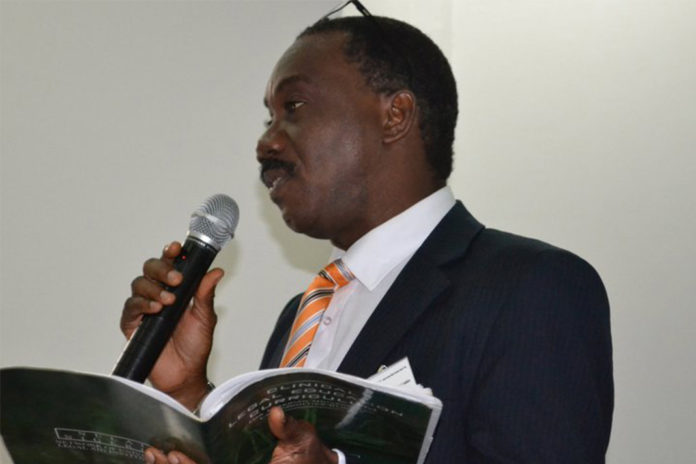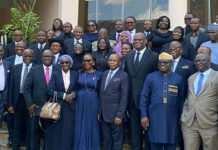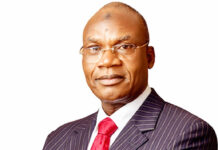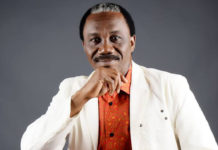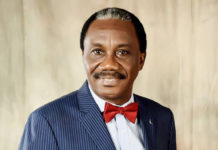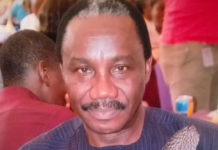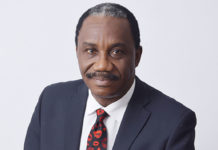Legal luminary, Professor Ernest Ojukwu, SAN, has tasked the bar to do more to protect the vulnerable people in the society against abuses.
Speaking at Nigerian Bar Association, Ikeja branch of Human Rights Committee, with the theme protecting the rights of vulnerable citizens in our society, Professor Ojukwu who was the keynote speaker at the one day seminar in Lagos noted that the Bar has not done much is this area.
Ojukwu said if the Bar can cure its problem, it can cure the nation.
He said there is no bar initiative on HIV discrimination, stressing that the bar needs to even protect its vulnerable young members from the wolves in the universities. He cited the Human Rights Commission report on abuses in Nigeria in 2015 which put the number of cases of abuse at 47,000.
“This is the 2015 reports of the Human Right Commission. I know that the human right commission is working, doing community outreach programmes and dealing with this particular report,” he said.
Ojukwu explained that the Nigerian Bar Association, NBA can come into these cases through evaluation of initiatives, assessment of initiatives and monitoring initiatives.
On how to protect the vulnerable people in our society, the Don explained that the first step is to perfect the legal framework that can back up any defence mechanism.
According to him: “Once we have a proper framework, then is for us to force the system to implement the laws, in some cases we don’t have the proper frameworks, for example there is no special law on discrimination against women, even though everybody is protected under the constitution but does not give you the real frame work as how to punish those that infringe on that rights. So for women, we don’t have, for children we have, but only in some states, only 24 states have Child Right Act so we need to get others to get the proper frameworks”.
In her welcome address, the vice chairman/ chairperson of Human Rights Committee, NBA, Ikeja Branch, Caroline Ibharuneafe stated that since the inauguration of the committee, they have taken some steps like offering of free legal services to the indigent in the society, including visits to Ikoyi prisons with the support of Ikoyi prison’s DCP and offering of free legal services to the indigent ones.
Mrs Ibharuneafe explained that with the United Nation’s declaration of Human and people rights in 1948, humanity began her accent towards universal brotherhood when man will become his brother’s keeper, adding that since then; national governments and the world all over have made conscious effort to ensure that the protection and enforcement of human rights are made their constitutional duties.
She maintained that civil societies the world all over have complemented the efforts of the government’s by acting as watch dogs or social conscience.
“Nigeria has not been exception in this regard as evidenced by section 36 of the constitution of the Federal Republic of Nigeria 1999 as amended. It is pertinent to point out that even the era of the military rule in Nigeria, the preservation and enforcement of human rights of citizens have always been in the front burners. It does my heart good to observe that the nation’s prime internal security outfit, the Nigerian police Force, has Human Rights Desk in her stations throughout the country,” she said.
In her remarks, the acting director Institute of Humanities, Pan Atlantic University and one of the speakers, Ifeanyinwa Awagu, who came on invitation of international division of women lawyers, Lagos state branch observed that the society needs to work on empowerment of its citizens first.
Is not just the vulnerable alone, the perpetrators also need help, because if we have fewer perpetrators, we have fewer victims, so there has to be a holistic approach to the whole thing which is working on the base, which is the dignity of the human person, she said
She emphasised that the society has to go back to the drawing board to find out what is to be done, “so that the society becomes conscious of the fact that we are human beings”.
Mrs Awagu added that “It could start from the homes, the parents to do their jobs, it could start from faith based organisations, the curriculum, curriculum, education system, I have signed it for so many years integrating character in the curriculum of the school. Recently the Civic education is like it has improved, but then children have to be thought that to be happy in life, need to identify whom you are, Identifying whom you are is that you are a special creature, you can’t give what you do not have, if a male child knows that he’s a special creature from God and that he deserves the dignity, he will be able to respect the woman and rape cases will be reduced.”
Speaking also, one of the speakers at the event, Taiwo Akinlami stressed the need for human capacity development to protect the vulnerable citizens in the society.
He gave the example of Lee Kuan Yew who paid attention to human capacity development in 1965 when Singapore got her independence.
He said: “Lee Kuan Yew focused on human capacity development, understanding that human capacity development starts from the kind of education we give our children. All of these are the issues, until we query our present dominant value system which creates who all of us are today. You treat children the way you see them, you see them the way you were seen growing up, until we query all of that and begin to do a lot of re orientation, I don’t think we are going anywhere and if we are not going somewhere, I think the future of Africa is bleak because what we are doing is what our children are going to be doing if our children are going to be consumers like us.
“I speak for children, I don’t believe the children are vulnerable, what you call child’s vulnerability is simply adult irresponsibility, adult needs to take responsibility, there are18 categories of orphans, vulnerable children, all the 18 categories are human creation not God’s creation”.



